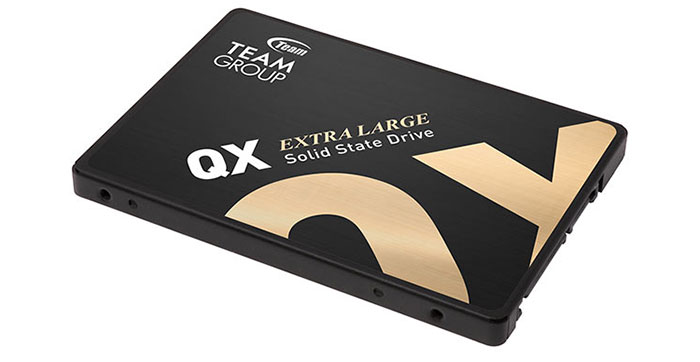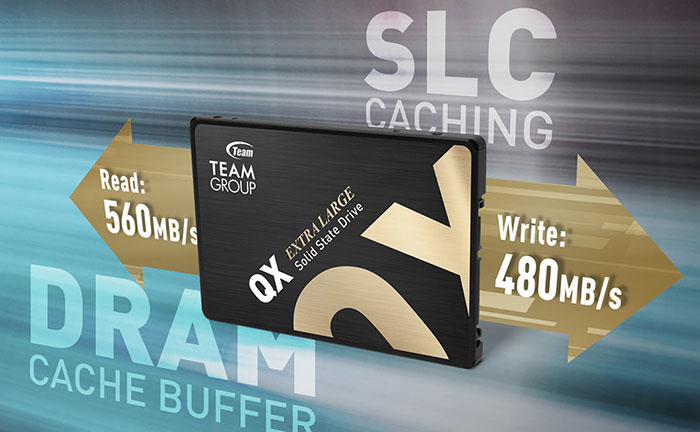Team Group has written to HEXUS to announce that it has launched the QX Extra Large SSD. Coming in at 15.3TB, this device is claimed to be the "industry's largest consumer grade 2.5-inch SATA SSD." Indeed the biggest I could find on sale today in the UK was 4TB, with the Samsung 870 QVO 8TB out of stock everywhere - but due shortly (20th Sept according to Scan).

A few technical details about the QX 15.3TB 2.5-inch SATA SSD are available to whet your appetite. Team Group says the drive utilised 3D TLC NAND and promises "ultra-high durability," with the drive purported to be stable and reliable. This aspect of a storage device seems to be all the more important as capacity increases. The device maker provides some durability figures, saying the QX offers >2,560TB, that it has a MTBF of 1,500,000 hours, that it is shock and vibration resistant, and can operate at between 0°C ~ 70°C. Buyers get a three year warranty.
As a 2.5-inch SATA device, the QX doesn't have any surprises on the performance front. Team Group says user can expect Read/Write: up to 560/480 MB/s, as measured by Crystal Disk Mark. No IOPS figures were given and I can't see them on the product web site. Aiding performance is the 'Smart Duel Cache' which is Team Group's way of describing a hybrid of SLC and DRAM caching technologies. I don't know the size of the SLC or DRAM caches.

Various SSD technologies are supported for longer life and better access / transfers speeds. The QX supports TRIM optimisation, NCQ, garbage collection, Wear-Levelling, and ECC functions.
As for pricing and availability, Team Group told HEXUS that the QX 15.3TB 2.5-inch SATA SSD will be "made by order," and that the price will be US$3,990. If you head on over to the official product page you will see a 'Contact Now' button where you might expect a buy button to be. This leads to a standard looking contact form where you can express your interest.













